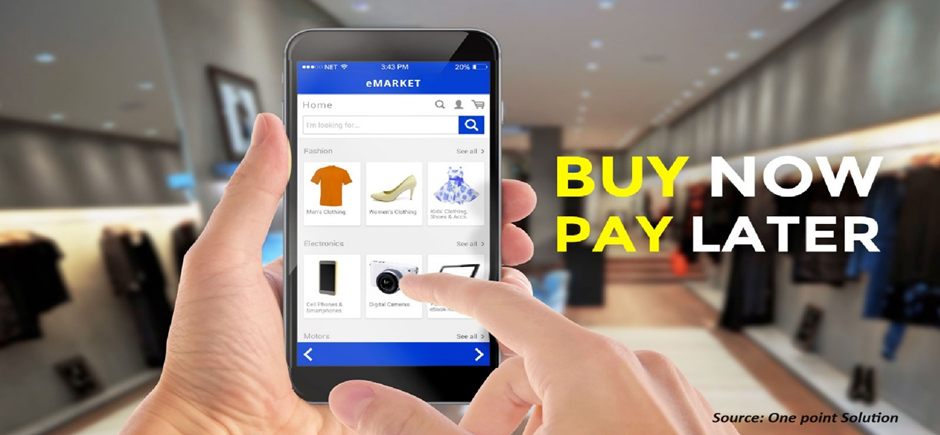
Singapore Mobile Payment Market by Age (Generation Z, Millennials, Generation X, and Baby Boomers), by Payment Type (Proximity and Remote), and by Application (Money Transfers, Merchandise Purchases, Bill Payments, Airtime Top-ups, Ticketing, and Others) – Opportunity Analysis and Industry Forecast, 2024–2030
Industry: ICT & Media | Publish Date: 01-Sep-2024 | No of Pages: 111 | No. of Tables: 79 | No. of Figures: 44 | Format: PDF | Report Code : IC2484
Singapore Mobile Payment Market Overview
The Singapore Mobile Payment Market size was valued at USD 137.2 million in 2023, and is predicted to reach USD 480.6 million by 2030, with a CAGR of 18.3% from 2024 to 2030. The mobile payment system, also known as money transfer, mobile money, m-payments, electronic payments, and digital payments, enables financial transactions through mobile devices such as smartphones, tablets, and wearables. These transactions occur through mobile apps or various methods such as proximity and remote transactions. Mobile payment systems include various types such as mobile wallets, mobile banking apps, and online payment services such as PayPal, Venmo, and Google Pay.
Utilizing technologies such as SMS, near-field communication (NFC), quick response (QR) codes, and others, these systems ensure smooth transactions while employing robust security measures including encryption and biometric authentication to protect personal and financial data. Praised for their convenience, speed, security, and integration with other financial tools, mobile payment systems experience widespread adoption. Moreover, users can configure payment apps to automatically settle bills, such as utility or credit card bills, ensuring efficient financial management and preventing late payments.
Ease of Use in Mobile Payment Services Drives the Market
The mobile payment market benefits significantly from ease of use, improving platform accessibility and user-friendliness. Simplified interfaces, fast transactions, and strong security features instill trust and promote adoption by consumers and merchants. Clear support and educational efforts further bolster user confidence, fostering a positive experience and driving market expansion.
Shift Towards Cashless Societies Propels the Singapore Mobile Payment Market
The transition towards cashless societies serves as a pivotal catalyst in the Singapore mobile payment market expansion. With societies worldwide increasingly embracing digitalization and convenience, cashless payments have become the preferred mode for transactions.
Mobile payment solutions offer consumers and businesses a seamless and efficient alternative to cash, facilitating secure and contactless transactions using smartphones or other mobile devices. The convenience, speed, and hygiene benefits of cashless payments have been particularly emphasized, especially during global events such as the COVID-19 pandemic, driving further adoption.
Additionally, governments and regulatory bodies actively promote cashless economies to tackle issues such as tax evasion, money laundering, and the underground economy. Consequently, the growing acceptance and adoption of cashless payment methods propel market growth for mobile payment solutions, offering opportunities for innovation, expansion, and financial inclusion.
Risks Related to Data Breaches and Security Concerns Hamper the Singapore Mobile Payment Market Growth
Risks related to data breaches and security concerns pose significant challenges to the Singapore mobile payment market growth. With the growing reliance on mobile devices for financial transactions, the potential for unauthorized access, data breaches, and identity theft has become a major concern for consumers and businesses. Instances of high-profile security incidents can undermine trust in mobile payment platforms, leading users to hesitate in adopting or continuing to use mobile payment services.
Moreover, regulatory bodies impose stringent requirements for data protection and cybersecurity, increasing the complexity and costs of mobile payment operations. Addressing these security concerns requires robust encryption, multi-factor authentication, and proactive security measures to instill confidence and drive the Singapore mobile payment market growth.
The Emergence of Real-Time Payment Creates Opportunities in the Singapore Mobile Payment Market
The advent of real-time payments offers significant opportunities for the mobile payment market, ushering in a new era of speed and convenience in fund transfers in the country. Real-time payment systems enable instant transactions between parties, providing unmatched efficiency and ease of use.
This advancement paves the way for mobile payment providers to offer seamless experiences to consumers and businesses alike. With real-time payments, transactions can be settled instantly, whether it's splitting bills with friends, making retail purchases, or transferring funds between accounts.
Furthermore, the integration of real-time payment capabilities into various sectors, including e-commerce, peer-to-peer lending, and on-demand services, drives innovation and expands the mobile payment ecosystem. In essence, the rise of real-time payments transforms payment processing and creates fertile ground for growth and innovation in the mobile payment market.
Competitive Landscape
Various key market players operating in the Singapore mobile payment industry include Alphabet, Inc. (Google), Alibaba Group Holdings Limited, Amazon.com, Inc., Apple, Inc., PayPal Holdings, Inc., Visa, Inc., Tencent Holdings Limited (WeChat), MasterCard International, Inc., Samsung Electronics Co. Ltd., Block, Inc., and others. These key players have adopted various strategies to strengthen their market share.
Singapore Mobile Payment Market Key Segments
By Age
-
Generation Z
-
Millennials
-
Generation X
-
Baby Boomers
By Payment Type
-
Proximity
-
Near-Field Communication (NFC)
-
Quick Response (QR) Code Payments
-
-
Remote
-
Internet Payments
-
SMS/Direct Carrier Billing
-
By Application
-
Money Transfers
-
Merchandise Purchases
-
Bill Payments
-
Airtime Top-ups
-
Ticketing
-
Others
REPORT SCOPE AND SEGMENTATION:
|
Parameters |
Details |
|
Market Size in 2023 |
USD 137.2 Million |
|
Revenue Forecast in 2030 |
USD 480.6 Million |
|
Growth Rate |
CAGR of 18.3% from 2024 to 2030 |
|
Analysis Period |
2023–2030 |
|
Base Year Considered |
2023 |
|
Forecast Period |
2024–2030 |
|
Market Size Estimation |
Million (USD) |
|
Growth Factors |
|
|
Companies Profiled |
10 |
|
Market Share |
Available for 10 companies |
|
Customization Scope |
Free customization (equivalent up to 80 working hours of analysts) after purchase. Addition or alteration to country, regional, and segment scope. |
|
Pricing and Purchase Options |
Avail customized purchase options to meet your exact research needs. |
KEY PLAYERS
-
Alphabet, Inc. (Google)
-
Alibaba Group Holdings Limited
-
Amazon.com, Inc.
-
Apple, Inc.
-
PayPal Holdings, Inc.
-
Visa, Inc.
-
Tencent Holdings Limited (WeChat)
-
MasterCard International, Inc.
-
Samsung Electronics Co. Ltd.
-
Block, Inc.




 Speak to Our Analyst
Speak to Our Analyst

































